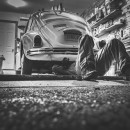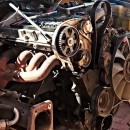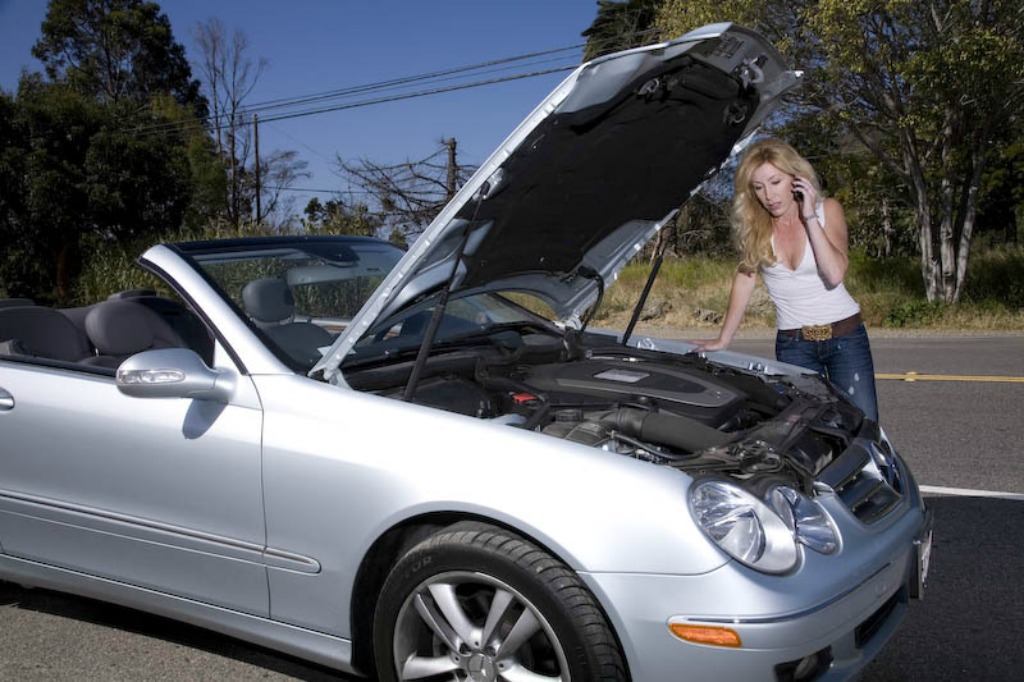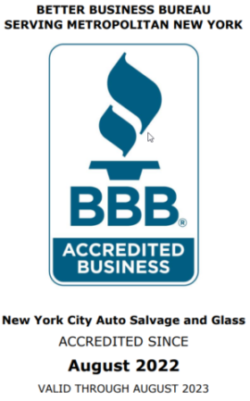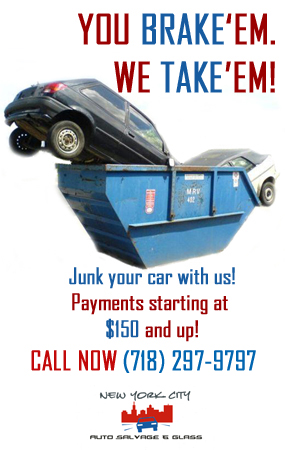Why vehicle recycling is the future?
The US automobile industry is massive. The United States is the fourth largest producer of automobiles in the world, right below Germany and Japan and just above South Korea. Supplying 5.5% of the world automobile supply, of which there are over a billion. The influx of vehicles to the US is added by the fact that the United States imports 179.6 billion USD worth of the world’s vehicle supply, the largest importer by a wide margin. This gives the United States a massive surplus in terms of available vehicles to be sold, increasing total ownership rates. This, combined with increasing costs of car repairs, as newer, modern cars are more complicated and rely heavily on computers, increasing time and effort to fix vehicles, have lead to a rise in new cars being bought.
This phenomenon has caused a rise in car recycling, with nearly 12 million cars recycled each year, 80% of all automobiles in the United States. So it is no wonder why the automobile recycling industry is the 16th largest industry in the US, adding $25 billion to the US GDP of 19.4 trillion, and employs over 100,000 workers. And the United States isn’t even the only country to recycle it’s cars, while the United States recycles 12 million cars, Europe recycles 8 million, and Europe saves about 80% of an original car through recycling, roughly the same as the United States. And surprisingly, the majority of US recycling measures are undertaken by small business, as 75 percent of all automotive companies employ less than 10 people. To add onto the benefits of recycling, North American car recycling programs have saved over 85 million barrels of oil from being used in making new or replacement cars.
Vehicle recycling is a beneficial alternative to complete scrapping, as it provides jobs, assists the environment, and is becoming an attractive new business. As recycling becomes more mainstream, and the demand for new cars starts pushing older cars into the recycling circle, the recycling business is turning into a quickly growing industry, and an excellent investment opportunity into a growing worldwide entrepreneurial field, that has room only to expand.
Auto parts; Why are used parts better than new cheap parts?
Any running machine is subject to tear and wear. A car’s windshield wipers, brake pads and shoes, and airbags need to be replaced after sometime. You will experience noises from your vehicle when a particular part has been worn out or even broken. It is advisable to research the auto part before you repair or replace it.
Rather than buying a new auto part, it is always advisable to replace a worn out or broken part with a used part even if it is a bit more expensive than the new part. This is so because of:
Convenience
An already used car part is easy to find as you know where to find it. New parts require a lot of research to find the best part to use. Old parts offer the simplicity of choosing an auto part.
Genuine
An added advantage of using a used auto part is that you might get a genuine part. Genuine parts have your cars logo and are the most ideal as they are identical
Quality
A new product is not always guaranteed to be of good quality. Actually what makes most of the new parts to be cheap is that their quality is poor. You might replace an auto part with s new one and find out later that the auto part is not durable. A quality auto part will serve you for a longer period.
Fit
Used parts fit perfectly and do not have a crumple zone, that is, they have a controlled manner in which they crumble when a car crashes meaning they are safer after an accident.
Used parts are also environmental friendly.
Read MoreTroubleshooting Tips: Why Your Car Won’t Start?
Almost every car owners have experienced turning on the key and nothing happens, the worst and frustrating scenario of being in an emergency and found out the car won’t start. Understanding the reason behind and learning the basic troubleshooting tips is your advantage.
Determine the Problem
To determine the reason what might be preventing your car from starting requires logical approach as there are many objects or parts behind the hood that needs attention like for instance.
Electrical
- Dead Battery is the most common reason that your car won’t start, it could be weak or totally dead. Weak battery at least produced a groaning sound but even tail lights don’t response for a dead one. Jump starting the car will fix dead battery issues
- Battery fuse often associated with a no-start car, take a look at its fuse system and find possible damage, replace it if necessary
- Battery corrosion is another cause. Check every connection or terminals for corrosion clean every angle and try to re-start your car
- Another electrical component that can affect the start system is a bad starter. Try to check using a circuit tester and see if it still works, if not, then this could be the culprit
Ignition System
- Ignition system could be the reason why your car won’t ignite. Check the coil using a multimeter that can measure the impedance. If it looks bad, replace it.
- Occasionally, distributor cap could be suspect, remove it and check if there’s possible dirt or moisture that causes your no-start problem. Wipe it thoroughly to get dry and if cracks or damage spotted, take a new piece.
Fuel Related
- There are many electrical connections in the fuel injection system, check every link and be sure that it is tight and properly arranged
- Check the fuel pump and relay with a circuit tester while the key is “On” position. From here, you can determine if the fuse or the pump relay is the cause
- Clog fuel filter is also another factor to consider. Your car is safe if you regularly change your fuel filter but if you neglect to replace it after 12,000 miles or so then this could be the source of the problem
Other “no-start” related issues
- The key will not turn the ignition switch with a lock wheel. Try to nudge your wheel left and right and turn your ignition key
- This may rare but it happens, check your spark plugs and see if it still work or needs to replace
- Cold engine will prevent you from starting, faulty cold start valve also brings an issue, try to start the engine when it is warm
Different cars have different ways to manage, it is perhaps similar but still, it has a distinctive process. If you think you need an opinion from car experts just dial (718) 297-9797 or like us on Facebook to see more tips and guides.
Read More
7 Common Signs of Transmission Failure
Transmission is a mechanical component that is most complicated and less understood in your vehicle. It is built in a combination of advanced hydraulic and computer-programed electronics elements that giving the right amount of power which makes the wheels drive at a given speed.
Now, have you noticed strange whining, grinding or any unusual signs in your transmission? Ignoring problems until it’s too late is a bad practice just like a small repair today could be turned into expensive restoration further down the road. Therefore, learning these 7 common signs of transmission problems is your advantage, so let’s get started.
- Clunking, Whining and Humming – there are no specific sounds that a car provides but usually, it is described as clunking, whining and humming that even if you are not a mechanical expert you’ll recognize it. Excessive noise indicates differential or transmission wear, better check it out as soon as possible.
- Leaking fluid – one of the visible signs that you may easily recognize is the leak of the fluid. If you found liquid on your garage floor or in your driveway it could be a broken seal or any other transmission issues, failing to fix it will make the problem get worse over time.
- Burning Smell – having said that 90% of transmission failure are due to overheat, a 20-degree increase in fluid temperature will start to produce strange odor which indicates that your gearbox is possibly burning.
- Lack of Reaction- transmission was designed to response well when shifting gear. If it wouldn’t shift the way it should then it could be the shift cables, clutch linkage, or the computer system but remember, any delayed reaction in acceleration is another sign of transmission troubles.
- Engine light – when the sensor picks up abnormalities in the system the “check engine” sign will keep on flashing and it means a lot of issues, some are minor ones but if the transmission seems to be acting erratically better be quick and let the expert check your vehicle.
- Grinding or Shaking – a car is supposed to run smoothly but if you feel it shaking or seemed abrasive then it suggests that there is a problem with the transmission do not let it carry on, allow the mechanic to analyze the symptoms.
- Gear Slipping – either automatic or manual gear, the transmission is outlined to stay in a designated system. Therefore if it won’t perform the way it should or you are driving in a specific gear yet suddenly change, it manifests a gearbox problem.
Manufacturers always state a fact of preventive measures and maintenance schedules, following these rules will greatly reduce the chance of serious and dangerous damage to your transmission as well as your car.
If you are searching for transmission or any other car parts reach us at 718-297-9797 or look for New York City Auto Salvage and Glass we lend you a hand and keep your vehicle in the right condition.
Check Your Brakes Before It Freaks You Out
“Precaution is better than cure, “ does this saying apply to your car brakes maintenance method? Typically, car brakes come in many forms such as a drum, disc, anti-lock and emergency brakes and whatever your auto have, obviously, well-maintained brakes will refrain you from experiencing accidents that might freaks you out.
Consider these signs as RED flags
No arguments found with the fact that perfect car brake condition is essential, hence do not ignore these symptoms that show car brake failure:
- Dashboard brake light (red or yellow) is up
- Unusual noise such as grinding, squeaking and metallic squeal
- Shaking or vibration in your steering wheel
- Lack of fluid that holds backs the force of brake pads
- Softness of brake pedal that never leaves an inch in the floor when pressed
- Sharp bad odor or burning smell when pressing the brakes pedal
If you totally lose control of your car brakes and if this terrifying and dangerous situation occurs, do the following actions:
- Don’t panic, pump your brake twice or more often as this will build up ample pressure to stop
- Check for any obstructions behind the brake pedal, plastic cups, empty bottle or even car floor mats could be a sort of blockage, kick it out-of-the-way
- Shifting your gear is another option if you are into your 4th gear, lower it slowly one at a time, never rush the process as rapid adjustment will bring you into trouble
- Be watchful and take every chance of going to the right lane approaching the exit, full over, and use emergency brake if needed
- Stay focus and be alert, keep your eye on the road watch for what’s in front of you as well as the pedestrian and road barrier
- Let the other driver know what is going on, switch the hazard lights on and honk your horn or you can open your window to shout if it is necessary
- Call anyone you think can give help for this scenario if you know a mechanic who is willing to aid you better give a quick call
Lastly, make it a habit to check your braking system (pads, fluid, rotors and brake shoes) as these parts are needs to replace every few years or so. Now, worn out brakes that need to restore? Visit New York City Auto Parts and salvage brake parts that work just fine in your car. Or call at 718-297-9797 to have a quick response.
Read More
